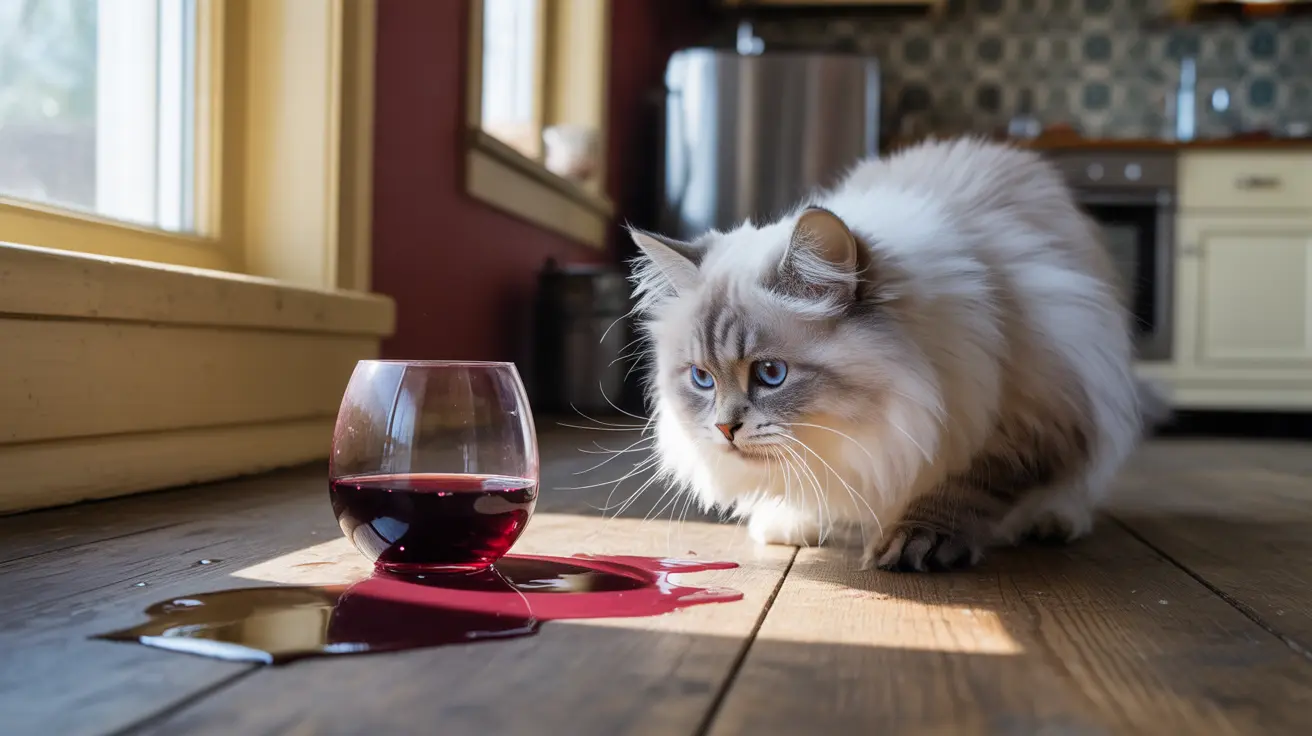Many pet owners may wonder if cats can get drunk like humans do. While cats can technically experience intoxication from alcohol, it's crucial to understand that even small amounts of alcohol can be extremely dangerous and potentially fatal for our feline friends. Let's explore why alcohol and cats should never mix, and what you need to know to keep your pet safe.
Cats are far more sensitive to alcohol than humans, with their small bodies and unique metabolism making them especially vulnerable to its toxic effects. What might seem like a harmless amount to us could cause severe poisoning in cats, leading to life-threatening complications within hours of consumption.
Understanding Alcohol's Effects on Cats
When cats are exposed to alcohol, they can show signs of intoxication similar to humans, but these symptoms indicate a serious medical emergency. Initial signs typically appear within 30-60 minutes of consumption and may include:
- Stumbling and loss of coordination
- Excessive meowing or unusual vocalizations
- Disorientation and confusion
- Lethargy or extreme drowsiness
- Vomiting and diarrhea
The Dangers of Alcohol Poisoning in Cats
As alcohol poisoning progresses, cats can develop severe and life-threatening symptoms. Just one tablespoon of alcohol could be enough to put an average-sized cat into a coma. More serious complications include:
- Severe respiratory depression
- Dangerous drops in blood sugar
- Seizures and tremors
- Organ failure, particularly affecting the liver and kidneys
- Cardiac problems
- Potential death
Common Sources of Alcohol Exposure
Alcohol doesn't just come from obvious sources like beer or wine. Cats can be exposed to alcohol through various household items:
- Alcoholic beverages left unattended
- Food cooked with alcohol
- Mouthwash and certain dental products
- Hand sanitizers
- Some cleaning products
- Fermented foods
- Certain medications or herbal tinctures
Emergency Response and Treatment
If you suspect your cat has consumed any amount of alcohol, immediate veterinary care is essential. Don't wait for symptoms to appear or worsen. The faster your cat receives treatment, the better their chances of recovery.
Veterinary treatment typically involves:
- Immediate stabilization
- Intravenous fluid therapy
- Monitoring of vital signs
- Support for respiratory function
- Management of seizures if present
- Prevention of further absorption
Prevention and Safety Measures
The best way to protect your cat from alcohol poisoning is through careful prevention:
- Store all alcoholic beverages securely
- Clean up spills immediately
- Keep alcohol-containing products out of reach
- Inform guests about the dangers of sharing drinks with pets
- Choose alcohol-free alternatives for pet-safe products
Frequently Asked Questions
Can cats get drunk like humans, and what are the signs of alcohol intoxication?
Yes, cats can show signs of intoxication, but these symptoms indicate dangerous poisoning, not just "drunkenness." Signs include stumbling, confusion, excessive vocalization, and lethargy. These symptoms require immediate veterinary attention.
How much alcohol is toxic to cats, and what are the lethal doses?
Even a tablespoon of alcohol can be dangerous for cats, with slightly larger amounts potentially being lethal. The exact toxic dose varies based on the cat's size and the alcohol concentration, but there is no safe amount of alcohol for cats.
What should I do if I suspect my cat has ingested alcohol or is showing signs of alcohol poisoning?
Seek emergency veterinary care immediately. Don't wait for symptoms to worsen or try home remedies. Quick professional intervention is crucial for your cat's survival.
Are there any foods or household products that contain alcohol that I should keep away from my cat?
Yes, many items contain alcohol, including mouthwash, hand sanitizers, some medications, cooking extracts, and fermented foods. Keep all these products securely stored away from your cat.
What are the long-term risks of alcohol poisoning in cats, and how can I prevent future incidents?
Alcohol poisoning can cause permanent organ damage, particularly to the liver and brain. Prevention involves secure storage of alcohol-containing products, immediate cleanup of spills, and educating family members and guests about the dangers.
Conclusion
While cats can technically get drunk, alcohol consumption is never safe for felines and should be treated as a serious emergency. Understanding the risks and taking proper precautions can help ensure your cat stays safe from this common household toxin. Remember, when it comes to alcohol and cats, there's no such thing as a safe amount – prevention is always the best approach.






